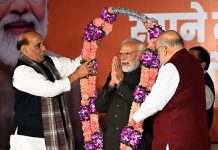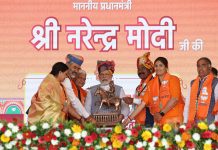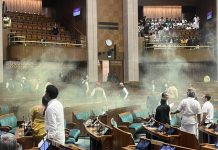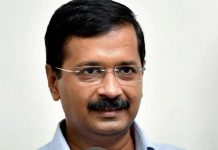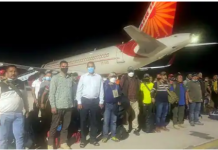Prime Minister Narendra Modi, the first Indian Prime Minister to address the World Economic Forum (WEF) annual summit in Davos in two decades, in his hour-long speech at the event tried to showcase his government’s economic track record. Domestically hailed as a big occasion speaker capable of sparking a response in his audience by dazzling them with the audacity of his vision, PM Modi was confronted with a tougher task at Davos, to find common cause on vital issues, and he picked up three issues on which most world leaders share identical views — globalization vs. protectionism, terrorism and climate change. Some experts opine that Modi was expected to have a big act to follow when he took the stage at Davos, but little of that was on display along with split reactions.
 Claims at Davos
Claims at Davos
Perhaps enthused by encouraging predictions by the World Bank and IMF that India’s economy would be the fastest-growing major one in ensuing years, Modi said India was poised to become a USD five-trillion economy by 2025. He also tried to showcase his government’s economic track record, emphasizing the “inclusiveness” apparently achieved during his term.
In his defence of globalization, Modi lamented that forces of protectionism were raising their heads against globalization and their intention was to change ‘the natural flow of globalization’. Modi’s stand found support from China which declared that it would like to work with India to strengthen globalization for the benefit of all countries.
Another key issue that PM Modi sought to highlight at Davos was that of terrorism when he said: “As dangerous as terrorism is, the artificial distinction being made between good terrorist and bad terrorist is more dangerous”. Some critics opine that this assertion perhaps was pointed at Pakistan’s dilly-dallying with sections of the Taliban and Kashmir-focused militant groups.
Modi’s allusion to climate change as another major vexing issue coincides with the fact that India has played a significant role under the Modi regime in sealing the Paris Agreement on Climate Change (PACC).
While speaking of India’s diversity, of how democracy was its strength, of how it sought consensus and unity in politics at home and abroad, PM Modi quoted poet Rabindranath Tagore, saying he had written of “a heaven of
freedom where the world is not divided by narrow walls” and called for turning that into reality, stating that “India
will always be a unifying and harmonizing force”.
Relevance of Claims
In the wake of PM Modi’s strong pitch for India as the most suitable destination for investment at Davos veering around five major claims — vibrant and inclusive economy, support for globalization and opposition to protectionism, resistance to terrorism, steadfast commitment to the objectives of PACC and a unifying and harmonious India — irrespective of split reactions to these claims, have spurred many dispassionate critics to evaluate the relevance of these claims at the domestic pitch.
PM Modi’s flaunting of his economic reforms abroad belies the strong undercurrent of discomfort at home, because both demonetization and GST implementation have been disruptive to say the least, and the promised benefits of both are yet to show up. Drawing attention to the fact that domestic players have cut back on investments as a lack of demand has rendered existing excess capacity useless, the RBI survey for the quarter ending September 2017 reveals that domestic industry is currently operating at only 70 per cent capacity in the wake of tepid demand, a monumental pile of bad loans, and shy investors as well as abysmal credit growth of the banks.
In the absence of credible data, the jury is still out on the amount of jobs or employment opportunities created and most of them agree that it is nowhere close to optimal. It is further pointed out that due to dearth of secure livelihoods from farms to factories, the mere opening of bank accounts for the poor has done little for financial inclusion.
While strongly criticizing protectionism at Davos, Modi government is pursuing a protectionist agenda at home, which is at odds with the mantra of globalization. Recent moves by the government to restrict imports into India are part of a broad industrial policy meant to force foreign companies to increase manufacturing operations in the country. Attention is also drawn to recent imposition of stiff tariffs by the government on imports of cellphones, video cameras and televisions.
In this regard, Mark Wu, a former trade negotiator for the USA, has said: “While the prime minister articulated all the right messages on globalization at Davos, his government remains firmly committed to a strategy of leveraging its market size to drive industrial policies to spur greater high-tech manufacturing in India. This is bound to cause greater trade frictions ahead.”
Growing income inequality in India is also a matter of serious concern that casts aspersions on India’s growth story. Recently released reports like World Inequality Report and annual Oxfam study report say that the richest 1 per cent of Indians got around 73 per cent of the total wealth generated in the country in 2017. Besides, WEF’s Inclusive Development Index for 2018 has ranked India at 62 among developing countries, behind even Pakistan.
As a sequel to these reports, some observers contest the government’s claim of inclusive growth by asserting that undoubtedly, India’s economy may be rebounding — slightly and hesitantly — after a self-inflicted slowdown; nevertheless, Modi’s government is obviously still under-confident, still conscious of the need to push its growth story on the world.
The government’s claim on climate change is also contested by some experts who point out that steps to promote renewable energy at home have been let down by lack of planning or coordinated effort within the government. While citing the example of lack of regulations for wind power having hamstrung the sector and squeezing of India’s red-hot solar power industry by a narrowing pipeline of auctions, experts have pointed out that the government’s latest move to stall the import of cheap solar modules from China and elsewhere won’t do the renewables industry any favours either.
According to a recently released report compiled by Yale’s Centre for Environmental Law and Policy, India’s ranking on pollution and ecosystem protection has fallen to 177 out of 180, down from 156 two years ago.
India’s claim of resistance to terrorism is conceded by many experts primarily because of alertness of our Armed Forces at the international borders and intelligence agencies domestically; however, what they bemoan is fractured Indian society, which is no stranger to religious or caste-based strife. Indulgence in violence and toxic rhetoric against minorities and Dalits, especially during elections to garner political and electoral dividends, being a recurring phenomenon, belies PM Modi’s motto of sabka saath sabka vikas.
Thus, much of his speech was a public-relations blitz that many in the audience had heard before. Davos didn’t want India to sell itself to the world; it needed India to lead. Claims made at Davos would sound hollow, if not addressed domestically.
letters@tehelka.com

